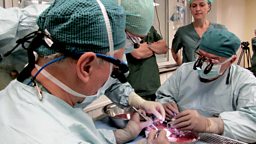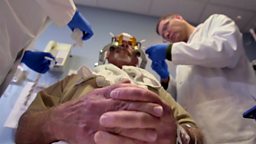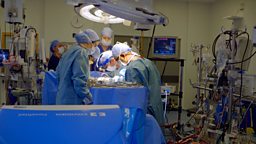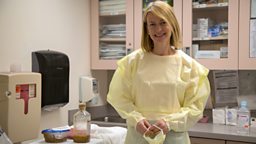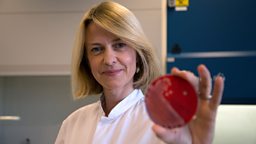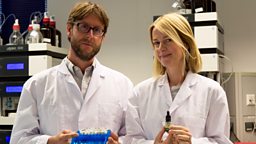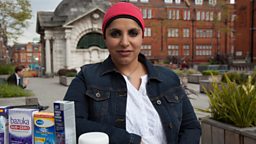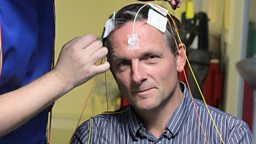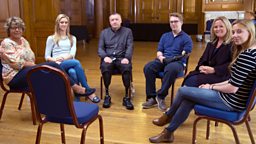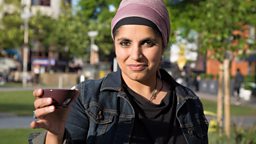Is there a cure for nut allergies?
It is not a cure, but a new treatment for children with severe peanut allergies is helping to protect them from life threatening reactions. Surgeon Gabriel Weston visited Addenbrooke’s Hospital in Cambridge to see it in action.
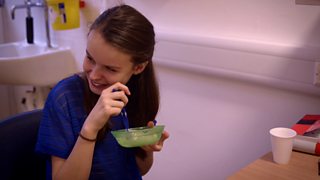
Every year the number of allergy sufferers increases by 5% with half of all affected being children. For those unlucky enough to develop severe allergies a tiny degree of exposure to the substance they’re allergic to could trigger a life threatening reaction. Managing allergies like this can be difficult as it requires patients and their families to constantly monitor food labels and meal preparation and can cause considerable anxiety. However a new treatment being offered at Addenbrooke’s Hospital in Cambridge is changing all this for children with severe peanut allergies.
The treatment is a form of what’s called immunotherapy. It aims to re-train the immune systems of peanut allergy sufferers which for some reason have learned to perceive peanuts as a serious threat. Exactly why this happens has always been something of a mystery, but new research suggests that the way we are first exposed to peanuts is important. The latest thinking, supported by recent results from a study called LEAP, suggests that we are more likely to develop a peanut allergy if our earliest exposure is through the skin rather than through the mouth. This kind of exposure prevents our immune system from learning that peanuts are safe to eat.
The treatment being offered at Addenbrooke’s hopes to overcome this problem by gradually exposing patients to small doses of peanut so that their immune systems can learn a degree of tolerance. The treatment has been developed by Dr Andrew Clark and Dr Pamela Ewan who begin by giving patients a tiny amount of peanut protein - the equivalent of just one hundredth of peanut - which is well below the level that could provoke a reaction. This is contained in a small capsule and is mixed with yoghurt for the patient to eat. Every few weeks the dose is gradually increased until the patient can tolerate the equivalent of one or two whole peanuts. A large trial with over 100 children resulted in 80-90% ultimately being able to eat the equivalent of five to six peanuts on a regular basis – this is enough to protect them against products that are labelled ‘may contain traces of peanuts’.
Immunotherapy is already available for severe hayfever sufferers, and to those with a bee and wasp sting allergy (venom immunotherapy). If you have a severe allergy then ask for an appointment with an allergy clinic where you can discuss immunotherapy options.
For those with food allergies, currently this treatment is only being offered to children with peanut allergy, and on a private basis, but in future Dr Clark hopes to apply it to other types of allergies and in different age groups. In the meantime research at the Allergy Clinic at Addenbrooke’s continues. During Gabriel’s visit she was able to learn about a study called TRACE which is looking at how factors like exercise and stress can affect severe allergic reactions, and in the long run researchers are hoping to get to the bottom of what actually causes allergies so that we can stop them from developing in the first place.
